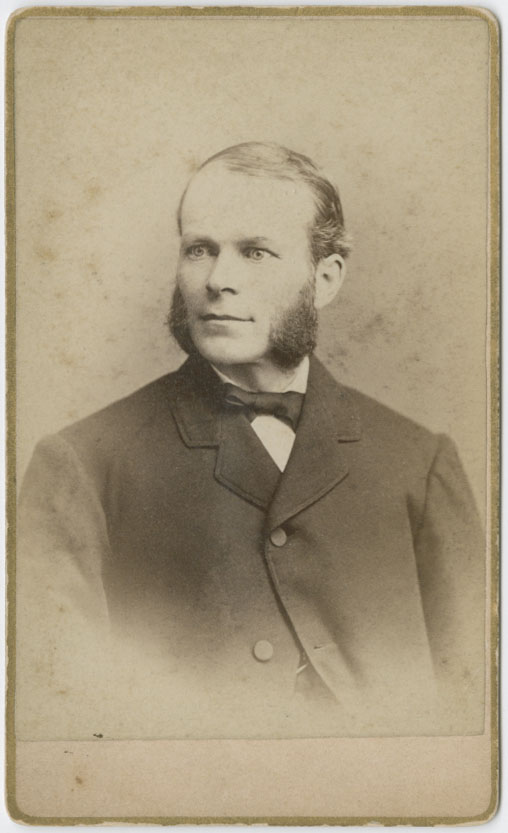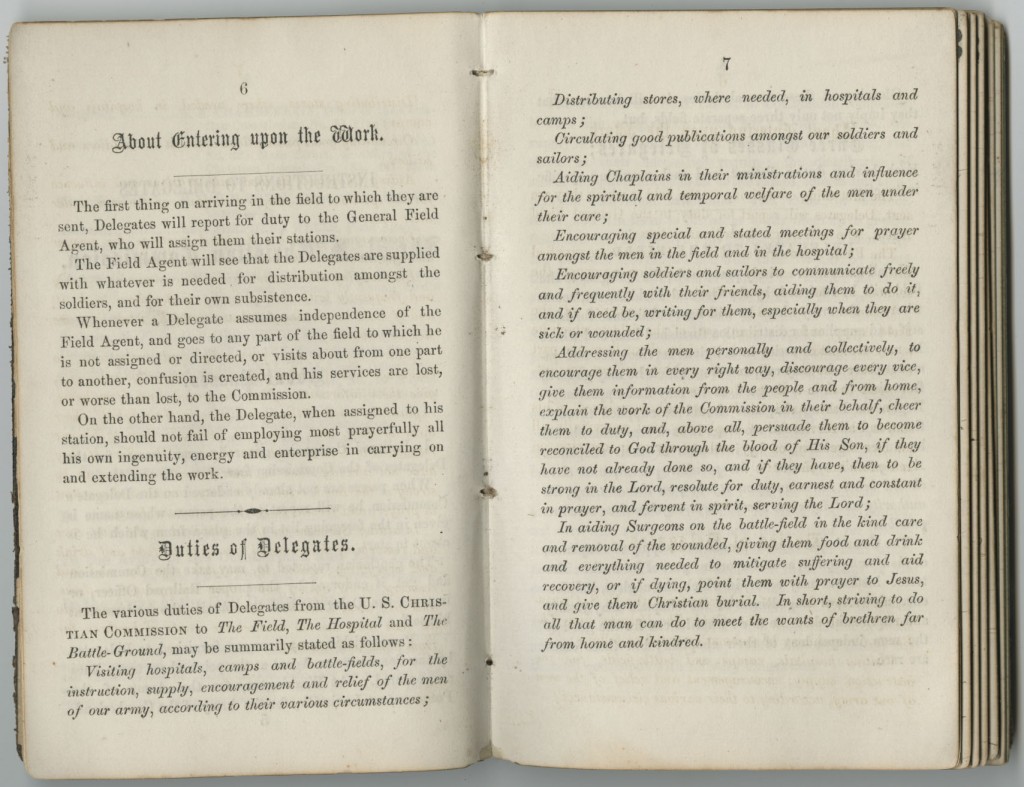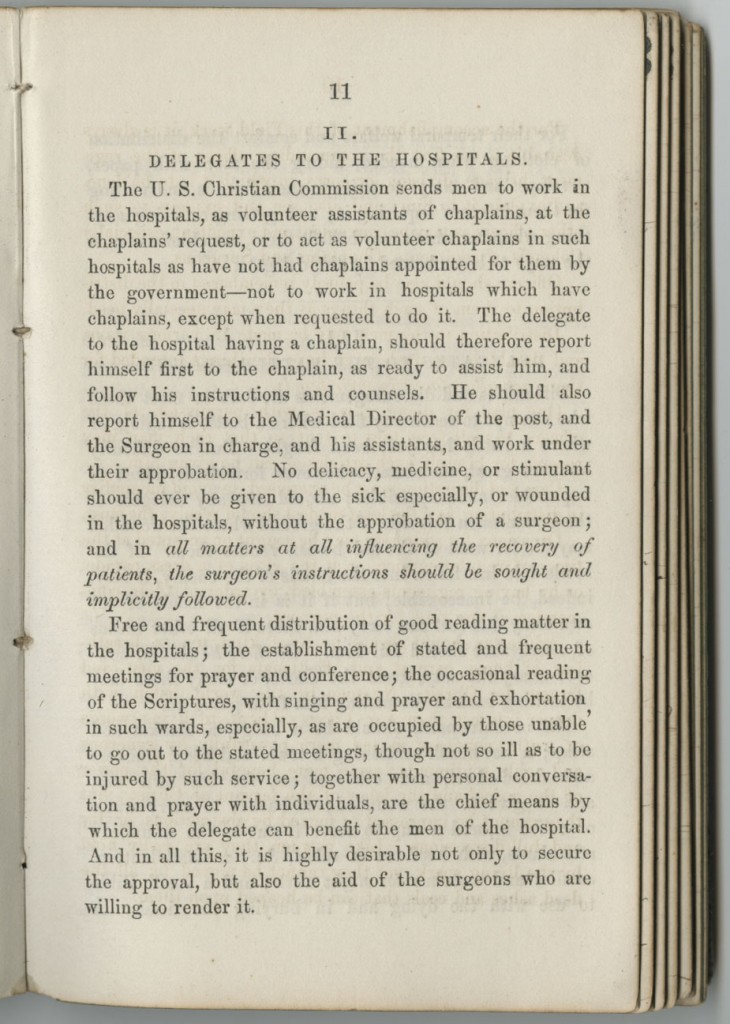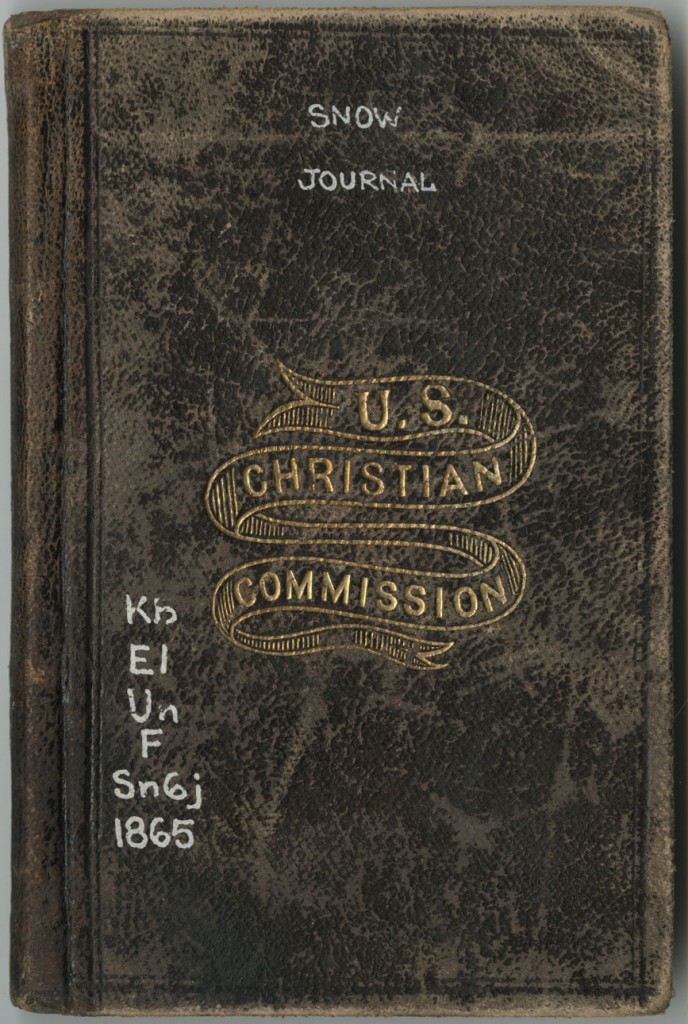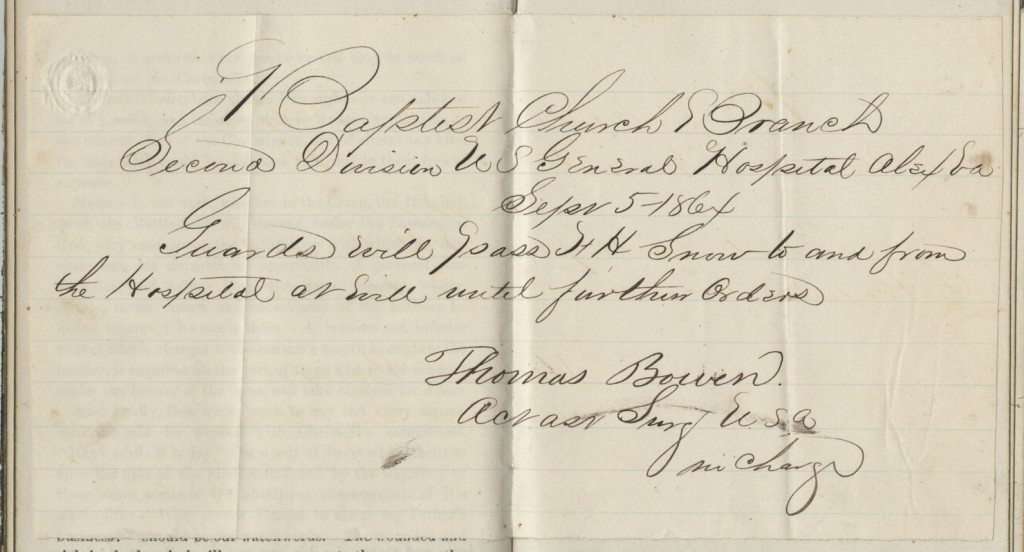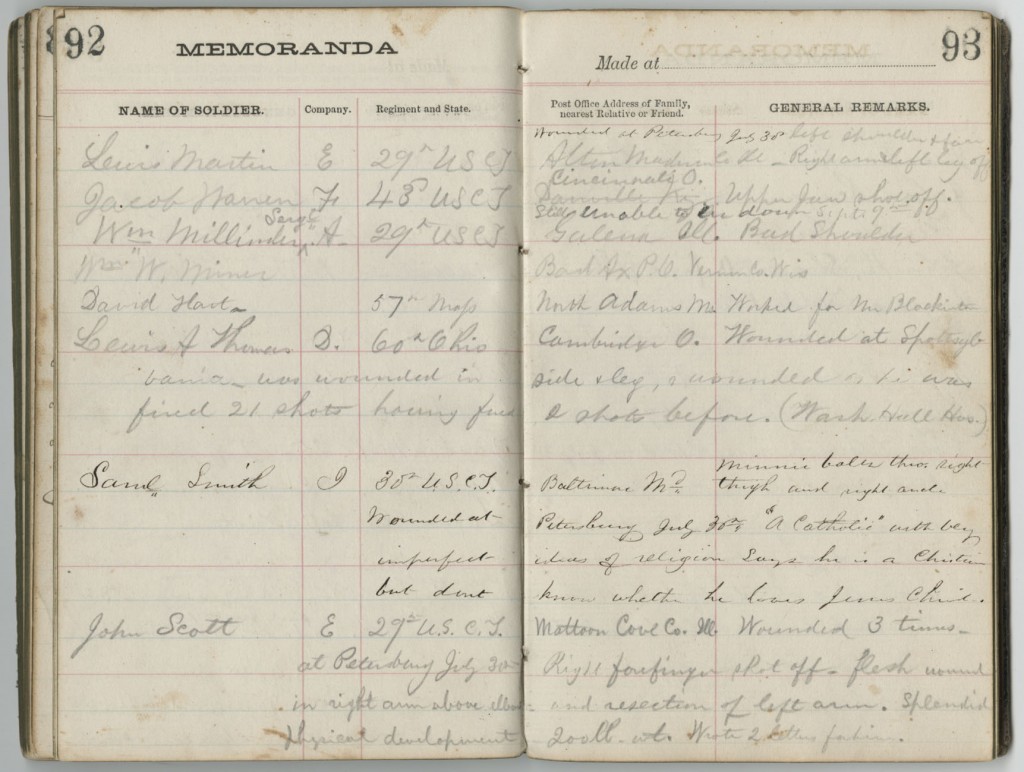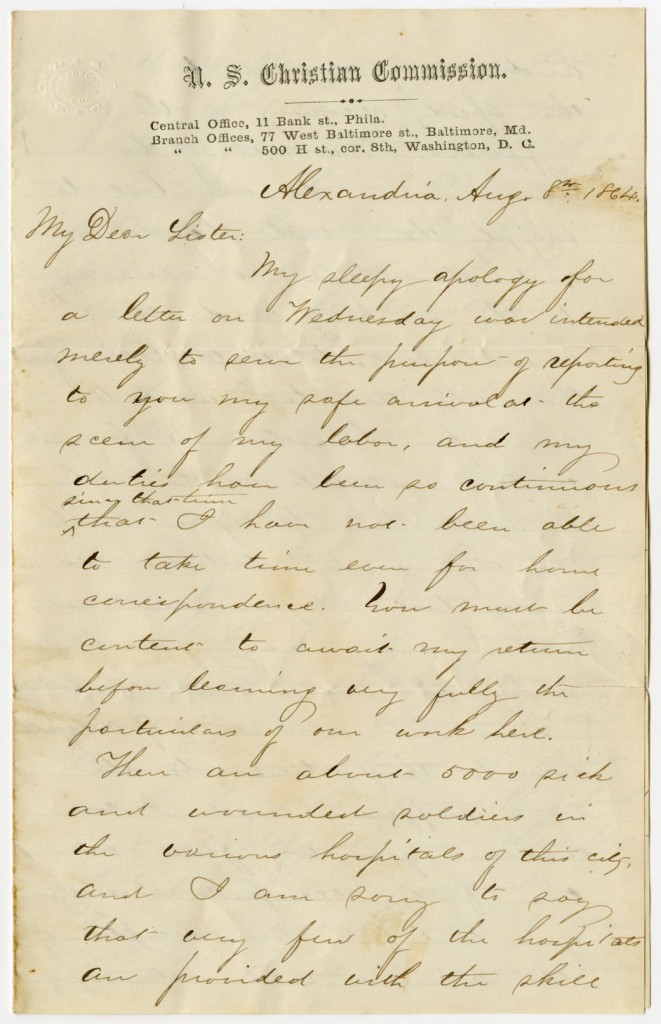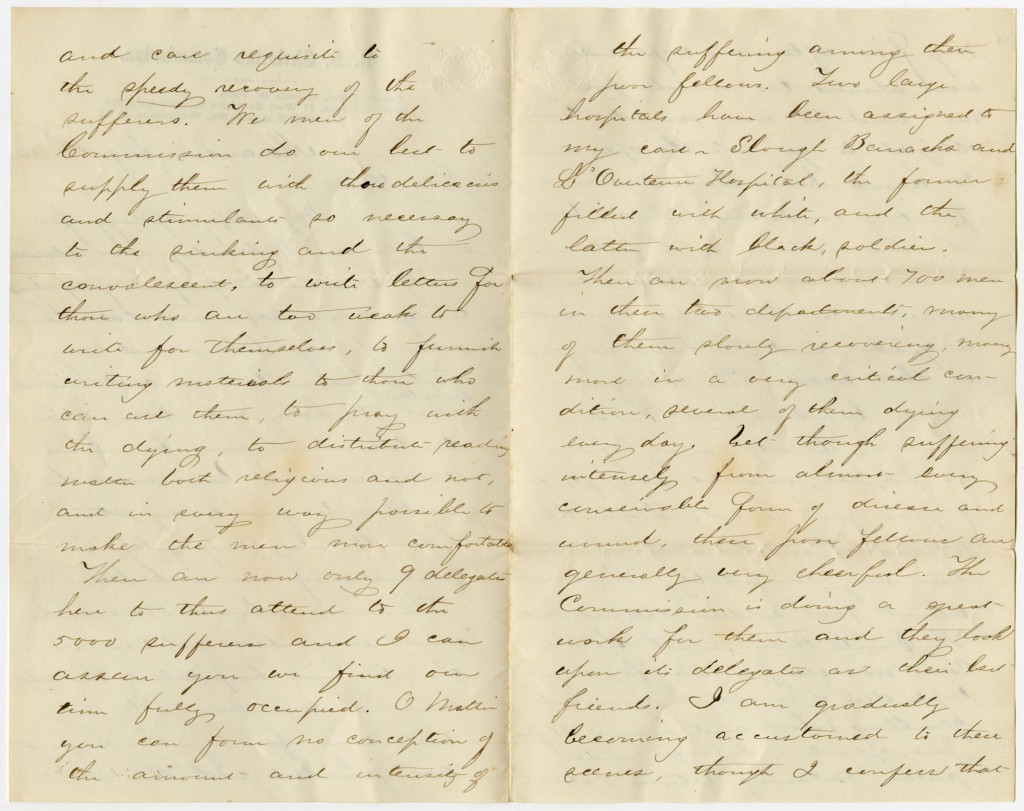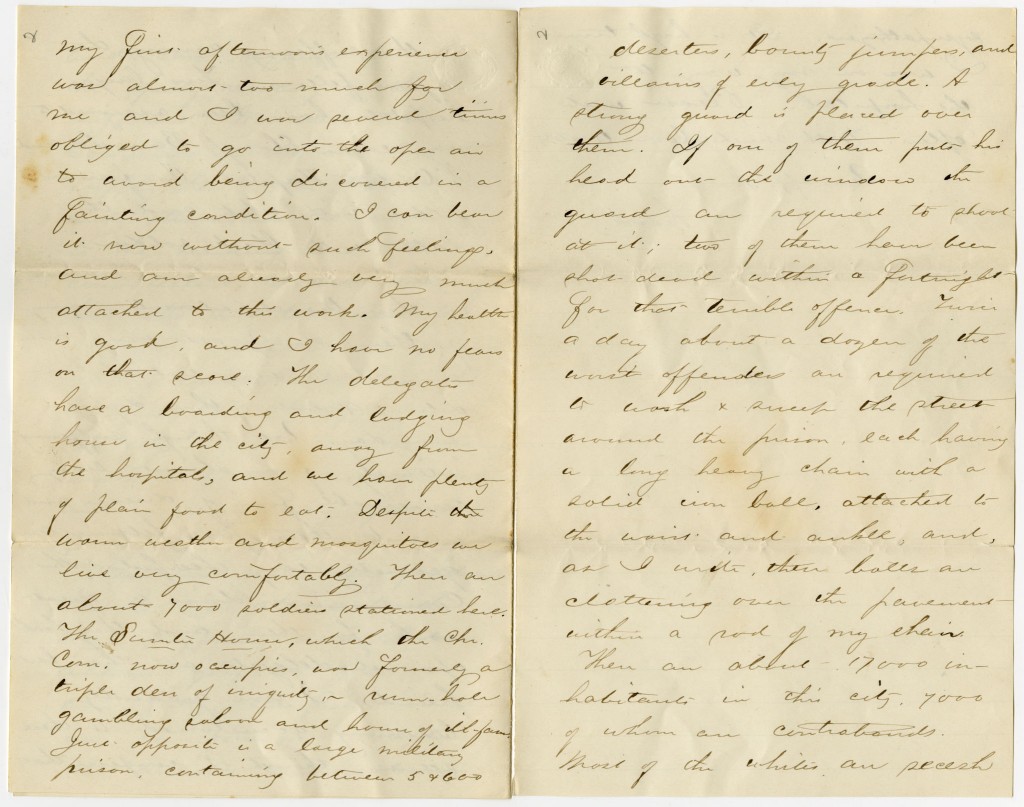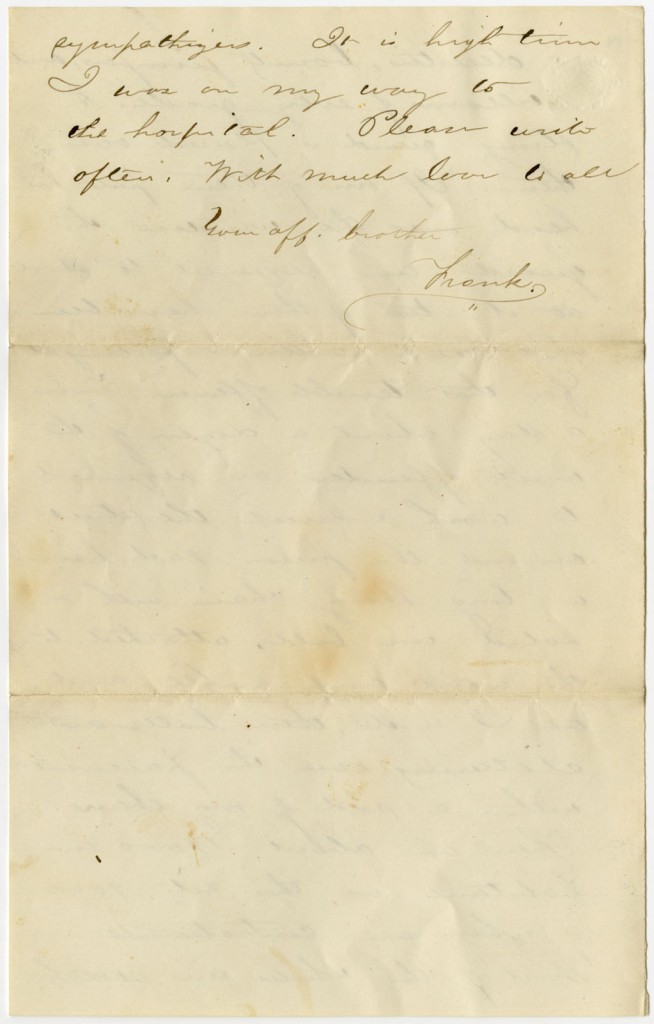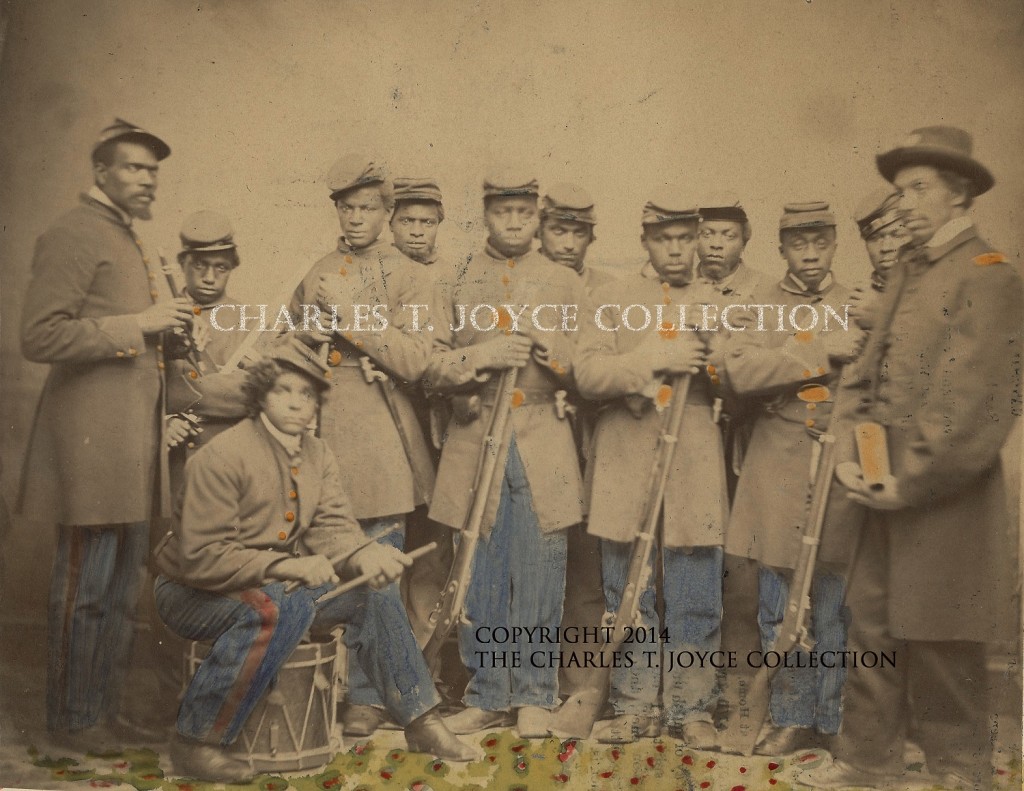The Quandary of Young Francis Snow
January 20th, 2016On Sunday, PBS aired the first of a six-part miniseries called Mercy Street, set at a Union hospital in Alexandria, Virginia, during the Civil War. This is the first of two blog posts that will explore a Spencer connection to that program. Both have been guest written by Spencer researcher Charles Joyce. Mr. Joyce is a labor attorney in Philadelphia, Pennsylvania, and also a long-time collector and dealer of Civil War photography.
Any connection between the University of Kansas and the PBS series Mercy Street would probably be considered unlikely at best. However, a fascinating historical link does exist in the form of Francis Huntington Snow (1840-1908), who, after the Civil War, became a prominent scientist and served as KU’s fifth chancellor.
An undated photograph of Francis Snow taken in Lawrence.
Snow arrived at KU in 1866; he taught mathematics and
natural sciences and was one of the school’s first three faculty members.
Snow served as KU’s chancellor from 1890 to 1901.
University Archives Photos. Call Number: RG 2/6 Undated Prints:
Chancellors: Francis Snow (Photos). Click image to enlarge.
In July 1863, Snow was a young Massachusetts divinity student facing a knotty ethical dilemma. The son of ardent abolitionists, Snow shared in his parents’ zeal to see the war transform into a crusade for the emancipation of four million enslaved African Americans. However, he believed his religious conviction and pacifist views prohibited him from actually taking up arms for the cause. Snow was drafted on July 18, 1863, and he recorded his thoughts on the matter in his diary, held at Spencer Research Library.
Could I be sure of a place where no fighting would be required, no amount of danger would deter me from going…[as] I might be of some service to the wounded on the battlefield or in the hospital. But a drafted man has no choice of position, and I, too, should be liable to be called to musket duty. So I can’t go.
Snow weighed his options for opting out of service, as allowed by the draft law. Believing that “[g]etting a substitute would be worse in my opinion than going myself,” Snow decided to pay the commutation fee of $300.
One year later, as soon as he finished his final exams at the Andover Theological Seminary, Snow hit upon a way to serve the Union cause and stay true to his moral precepts. He volunteered as a delegate with the U.S. Christian Commission, established by the YMCA, then just ten years old. The organization’s purpose was to promote the spiritual and physical welfare of Union soldiers and sailors. Francis Snow was posted at Alexandria, Virginia, for six weeks (August-September 1864) and tasked with caring for sick and wounded men at several of the military hospitals there. (He later served another five weeks with the Commission, March-May 1865.)
“Duties of Delegates” of the U.S. Christian Commission. Francis Snow journal, August 1-September 14, 1864.
University Archives. Call Number: RG 2/6/6. Click image to enlarge.
Instructions for Commission delegates serving in hospitals,
from Francis Snow’s 1864 journal. Other Commission delegates
served with regiments in camps and on battlefields.
University Archives. Call Number: RG 2/6/6. Click image to enlarge.
Snow was unpaid, except for expenses, and he was required to keep a journal detailing his service on behalf of the Commission. In this, he recorded that during his stay in Alexandria, he visited with over 2700 hundred wounded soldiers, wrote 128 letters for them, read scripture, sang hymns, and led them in prayer many hundred times more.
The cover of one of Francis Snow’s two Commission journals.
Included is Snow’s account of being at Appomattox Court House,
Virginia, on April 9, 1865, when General Lee surrendered to General Grant.
University Archives. Call Number: RG 2/6/6. Click image to enlarge.
A travel pass glued in to Francis Snow’s 1864 journal, instructing
“guards [to] pass F. H. Snow to and from the Hospital at will until further orders.”
University Archives. Call Number: RG 2/6/6. Click image to enlarge.
Snow’s 1864 journal included a ten-page list of soldiers with whom he interacted.
Here he noted information about each man, especially the nature of his injury and his religious affiliation.
Many of the men listed on this page were African American soldiers; their regiment was listed as “USCT,”
or U.S. Colored Troops. University Archives. Call Number: RG 2/6/6. Click image to enlarge.
One of Snow’s assignments in Alexandria took him to L’Ouverture Hospital, specially constructed to care for sick and wounded African American soldiers, who were kept segregated from their white comrades. Here he befriended the Hospital’s Chaplain, the Reverend Chauncey Leonard, who signed his journal on a page he apparently maintained for “autographs.”
A letter from Francis Snow to his sister describing
his hospital experiences in Alexandria, August 8, 1864.
“There are now only 9 delegates here to thus attend to the 5000 sufferers,”
he wrote, “and I can assure you we find our time fully occupied.
O Mattie you can form no conception of the amount and intensity
of the suffering among these poor fellows.”
University Archives. Call Number: RG 2/6/6. Click image to enlarge.
Snow’s interest in and empathy with the black population of Alexandria, which had swelled during the war years, was also manifest in other, less official duties, like teaching a Sunday School class of black children. Indeed, when his tour with the Commission ended in early September, Snow “found it hard to get away” from those men, women, and children. He gave the Reverend Leonard $20 to “lay out for the boys” at L’Ouverture.
African American soldiers from L’Ouverture Hospital, circa 1864.
Photograph in the private collection of Charles Joyce; used with permission.
Click image to enlarge.
Sometime thereafter, probably toward the end of 1864, an unknown artist took a photograph of Leonard with a group of black soldiers who were convalescing from war wounds and sickness at L’Ouverture. Someone sent a copy of the image to Francis Snow; he carefully wrote down each man’s name in the margins of the image and kept it all of his life. The photograph was found in a box in Snow’s personal library some 145 years later, and I purchased it in an online auction. More research on the soldiers in the photograph led to the holdings of the Spencer Library, including Snow’s original diary and Christian Commission journals. More on that in the next entry…
Charles Joyce
Guest Blogger and Spencer Researcher
Philadelphia, Pennsylvania

